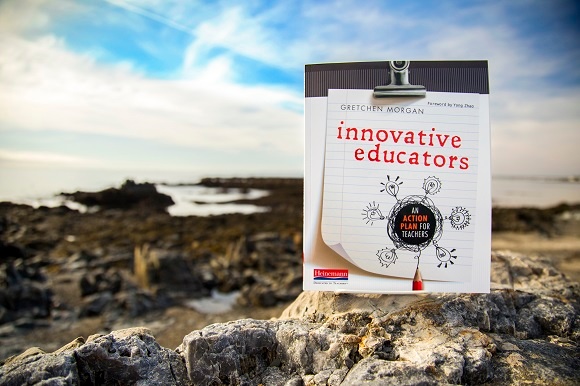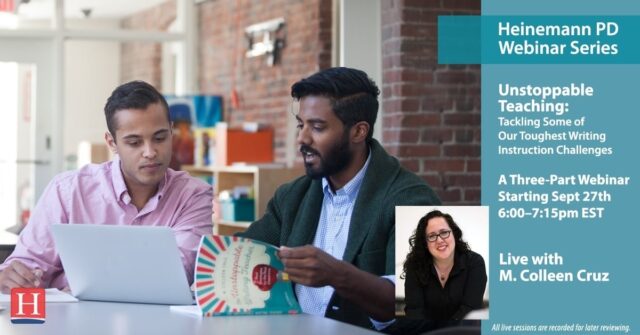In the new book Innovative Educators: An Action Plan for Teachers, author Gretchen Morgan considers the general public's perception of teachers. In today's blog post, Gretchen calls for teachers to see the craftsmanship of education, to subvert, and to open classroom doors.
In the new book Innovative Educators: An Action Plan for Teachers, author Gretchen Morgan considers the general public's perception of teachers. In today's blog post, Gretchen calls for teachers to see the craftsmanship of education, to subvert, and to open classroom doors.

by Gretchen Morgan.
One of the things I have discovered since branching out from my own classroom is that people who work in other industries don’t always value learning as a thing unto itself. They are disheartened when their children want to be literature majors in college or take a gap year to backpack through Europe. Because, to many people, education and learning are a means to an end: economic independence. While I certainly want my children to grow up and live somewhere other than my basement1, I am (and maybe a few of you are) a little offended by this perspective. I became an educator because I believe education is an essential investment in the quality of my community. I wanted to help individual children grow into unique and wonderful adults because that is the responsibility of humanity, not because the telecom industry told me to.
But despite my frustration on this topic, I think it is time to become a little less frustrated and a great deal more proactive, to spend a little less energy feeling good or bad about why others are willing to value or are eager to undermine public education—and strive instead to help more and more people find value in public education as a common good. It may feel especially challenging to engage in this effort now, when many teachers feel devalued and mistrusted in big things, like districtwide curricula and daily pacing guides, and small things, like telling someone at a dinner party, “I’m a teacher,” and hearing, “Oh. You must really love kids” (translation: “Lucky you, you get to play around all day”).
Our peers in other professions don’t know how complex teaching is. When we say teaching is a craft, people sometimes misunderstand. It isn’t a craft in the sense that we start with colorful materials and use them to create something decorative. It is a craft in that it requires craftsmanship—continued reflection, study, attention, and intention—to be done well. Incidentally, it is probably equally true that we don’t know how complex their jobs are. The difference is we don’t assume we can understand their work because we didn’t spend thirteen of the first eighteen years of our lives experiencing it.
---
Some of the best teachers make a concerted effort to keep their good practice a secret because it strays from the daily pacing guide.
---
I will confess, there have been times when I have judged and ignored noneducators who expressed oversimplified and unappreciated views of teaching. I’ve nodded and forced a smile and quickly found a reason to walk away feeling arrogant and smug. As the profession experiences intensified scrutiny, many of our most intentional and creative teachers retreat, whether fearfully or smugly, behind their closed classroom doors. Some of the best teachers make a concerted effort to keep their good practice a secret because it strays from the daily pacing guide.
It’s time to stop subverting the political processes that shape and direct public education and open our classroom doors. It’s time to learn about the nature of work in other professions, listen and try to understand the perspectives of people who don’t understand our profession, and help everyone outside our classroom see the importance and complexity of our craft.
1 Credit must be given to Yong Zhao for suggesting we may want to measure the quality of our education system by determining what percentage of adults can and choose to live somewhere other than their parents' basement as young adults. [BACK]
Click here to learn more about Innovative Educators and to read a sample chapter.


